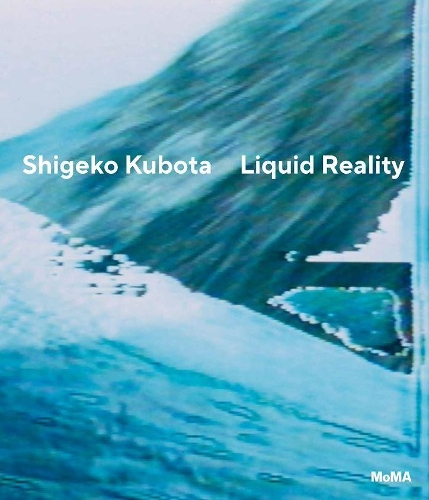
Shigeko Kubota: Liquid Reality
(Hardback)
Publishing Details
Shigeko Kubota: Liquid Reality
By (Author) Erica Papernik-Shimizu
Text by Gloria Sutton
Museum of Modern Art
Museum of Modern Art
23rd November 2021
12th August 2021
United States
Classifications
General
Non Fiction
The Arts: art forms
Exhibition catalogues and specific collections
700.92
Physical Properties
Hardback
184
Width 230mm, Height 270mm
770g
Description
Shigeko Kubota: Liquid Reality sheds new light on an under-recognized visionary artist whose work has been central to The Museum of Modern Art's collection of time-based media art. A resurgence of interest in Kubota has been quietly brewing since her death in 2015; following several recent group exhibitions that included her work, this survey is the first to revisit her practice in a holistic way. In an important shift away from the narrative of the woman behind the great male artist (Kubota and Nam June Paik met in the late 1960s and married in 1977), this publication serves as a rich and illuminating introduction to Kubota's practice and places her on the map as a major artist in her own right. Essays by curator Erika Papernik-Shimizu and scholar Gloria Sutton provide an in-depth look at Kubota's key works, which deftly interweave prophetic contemplations of an increasingly interconnected "pan-cybernetic" world with ongoing personal examinations of her own life, including transcultural observations made as a Japanese woman artist living in New York, and of her encounters with death. This richly illustrated catalogue contextualizes the artist's ground-breaking video sculptures through sketches, archival material, and nature studies-many of which are reproduced for the first time-to bring into focus Kubota's observations on what technology can teach us about our own humanity.
Reviews
Kubota sought an alternative to the way that video is created and consumed, encouraging viewers to critically engage with the medium rather than passively absorb it.--Cassie Pickard "Artforum"
Kubota viewed the intrinsic decay and distortion of video as gestural, and suited to her simultaneously American and Japanese fascination with landscape.--John Reed "New York Observer"
Reveals the artist's simultaneous exploration of the ephemeral and monumental qualities of her chosen medium.--Jane Ursula Harris "Frieze"
Her work posits that video can refract and distend across contexts, becoming a garbled object ripe for misreadings and semi-coherent glimpses. It can live nowhere and yet feel like it's everywhere -- meaning nothing at all but echoing, refracting, repeating, looking so tantalizing and beautiful.--Justin Kamp "Hyperallergic"
Her work can be viewed as an escape we might yet make by privileging experiences over the mechanisms that deliver them.--Jonathon Keats "Forbes: Media"
Author Bio
Erica Papernik-Shimizu, Associate Curator, Media and Performance. Gloria Sutton, Associate Professor of Contemporary Art History and New Media, Northeastern University, Boston.
